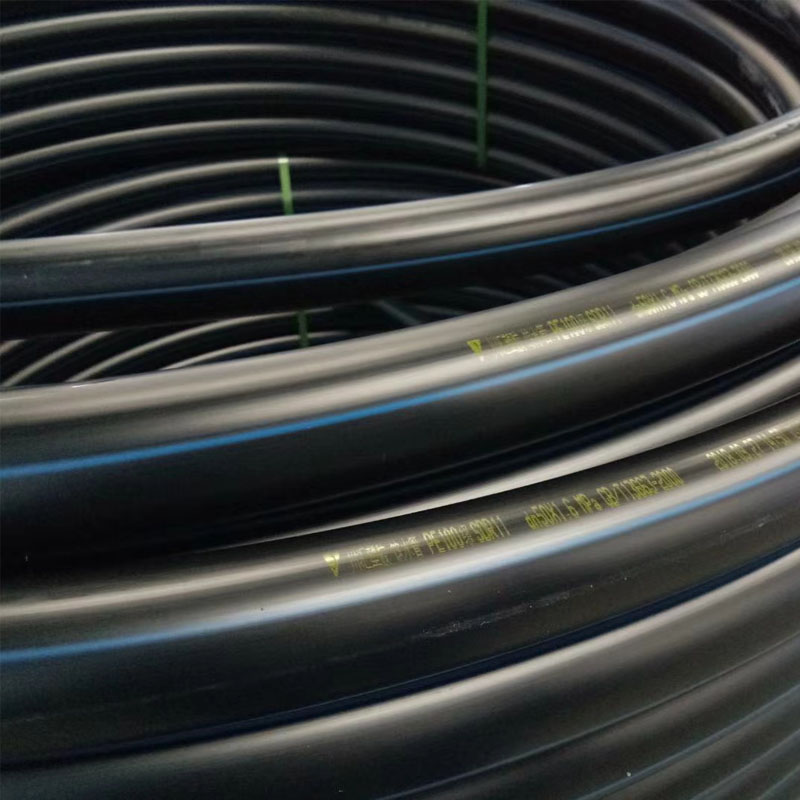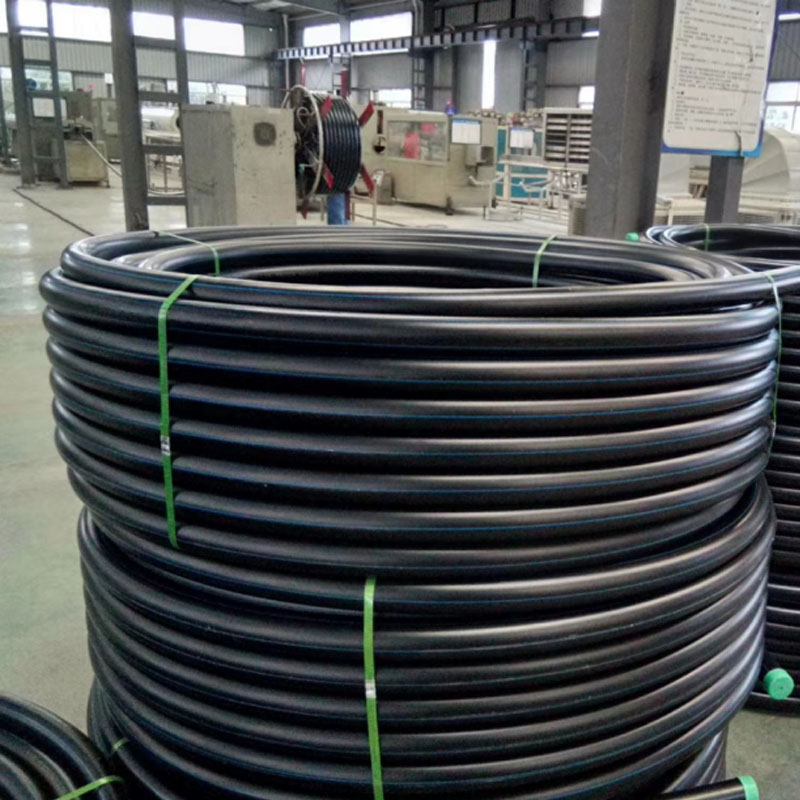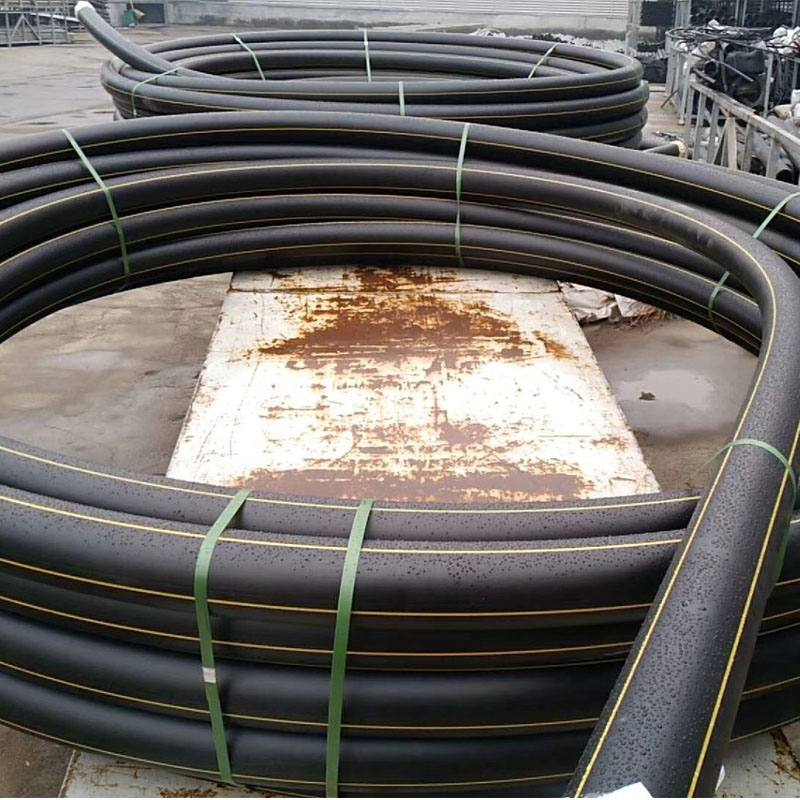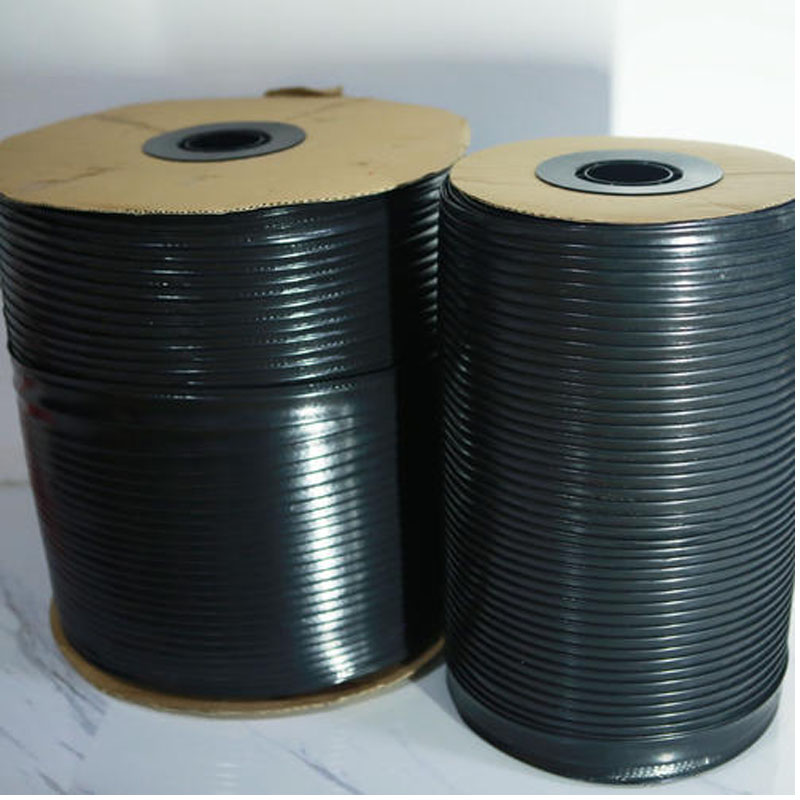Aug . 08, 2025 03:20 Back to list
Flexible DN50 HDPE Pipes in Coils: Durable & Easy Install
Unveiling the Advantages of DN50 HDPE Pipes in Coils: A Comprehensive Guide for Modern Infrastructure
In the evolving landscape of modern infrastructure and utilities, the demand for durable, efficient, and cost-effective piping solutions is paramount. Among the diverse materials available, High-Density Polyethylene (HDPE) pipes have emerged as a frontrunner, particularly DN50 HDPE pipes in coils. This comprehensive guide delves into the specifics of these innovative piping solutions, exploring their technical parameters, manufacturing processes, wide-ranging applications, and undeniable advantages that position them as a superior choice for various industries.
The global shift towards sustainable and resilient infrastructure necessitates materials that can withstand harsh environments, offer long service life, and contribute to resource efficiency. DN50 HDPE pipes in coils exemplify these qualities, offering an unparalleled combination of flexibility, chemical resistance, and ease of installation, making them indispensable for critical fluid transfer systems.
Industry Trends and the Growing Adoption of HDPE Piping
The global pipeline market is experiencing significant growth, driven by increasing urbanization, industrial development, and the urgent need to replace aging infrastructure. Traditional piping materials like concrete, steel, and PVC are increasingly being supplemented or replaced by advanced polymer solutions like HDPE. This trend is fueled by HDPE's superior performance characteristics, including its resistance to corrosion, abrasion, and fatigue, which translate into reduced maintenance costs and extended operational lifespans.
Specifically, the market for small-diameter HDPE pipes, such as DN50 HDPE pipes in coils, is expanding rapidly due to their suitability for last-mile connections, intricate network layouts, and trenchless installation methods. Industry reports indicate a compound annual growth rate (CAGR) for HDPE pipes often exceeding 5% in various regions, highlighting their increasing acceptance and preference across sectors like water supply, gas distribution, and telecommunications conduit. This growth is a testament to the trust placed in HDPE technology for reliable and sustainable infrastructure development.
Understanding DN50 HDPE Pipes in Coils
At the core of this discussion are DN50 HDPE pipes in coils. To fully appreciate their value, it's essential to break down their nomenclature and material science.
What is DN50?
DN50 refers to "Diameter Nominal 50," which is a European standard for pipe sizing. It indicates a nominal internal diameter of approximately 50 millimeters (or roughly 2 inches). This size is highly versatile, ideal for branching lines, smaller distribution networks, and connections where higher flow rates are not strictly required but reliability and durability are paramount.
What is HDPE?
HDPE, or High-Density Polyethylene, is a thermoplastic polymer produced from the monomer ethylene. It's known for its high strength-to-density ratio, making it a robust yet flexible material. For piping applications, specific grades like PE100 are commonly used. PE100 signifies a minimum required strength (MRS) of 10 MPa (100 kg/cm² or 1450 psi) at 20°C for 50 years, ensuring exceptional long-term hydrostatic performance. Its molecular structure provides excellent resistance to chemicals, abrasion, and UV radiation, making it suitable for buried and exposed installations.
Why "in Coils"?
The "in coils" aspect is a significant advantage for pipes of this diameter. Instead of rigid straight lengths, DN50 HDPE pipes in coils are manufactured and supplied wound onto large drums or spools. This coiling significantly reduces the number of required joint connections, minimizes waste, and simplifies logistics and installation. Long continuous lengths reduce the potential for leaks at joints, lower installation time, and can be easily deployed in confined spaces or across uneven terrain using trenchless technologies like Horizontal Directional Drilling (HDD).

Technical Parameters and Specifications of DN50 HDPE Pipes in Coils
Understanding the technical specifications is crucial for proper system design and material selection. DN50 HDPE pipes in coils are characterized by several key parameters:
- Material Grade: Predominantly PE100 or PE80. PE100 offers superior pressure ratings and longevity.
- Nominal Diameter (DN): DN50 (approx. 63mm outside diameter for most common SDRs).
- Standard Dimension Ratio (SDR): This is the ratio of the pipe's outside diameter to its wall thickness (SDR = OD/WT). Lower SDR values indicate thicker walls and higher pressure ratings. Common SDRs for DN50 include SDR11, SDR17, SDR21, SDR26.
- Pressure Nominal (PN): Indicates the maximum permissible operating pressure in bars at 20°C. PN corresponds to SDR. For example, PE100 SDR11 pipe typically has a PN16 rating (16 bar).
- Standard Lengths: Coils can vary widely, typically from 50 meters to several hundred meters (e.g., 100m, 200m, 500m), depending on SDR and transport limitations.
- Temperature Range: HDPE pipes typically operate effectively in temperatures from -40°C to +60°C, though pressure ratings must be de-rated at higher temperatures.
- Expected Service Life: Over 50 years, with some estimates reaching 100 years for properly designed and installed systems.
Typical DN50 HDPE Pipes in Coils Specifications Table (PE100)
| Parameter | Value/Range | Notes |
|---|---|---|
| Nominal Diameter (DN) | DN50 | Nominal Bore (approx. 2 inches) |
| Outside Diameter (OD) | 63 mm | Standard for DN50 HDPE pipes |
| Material Grade | PE100 (or PE80) | PE100 offers 10 MPa MRS |
| Standard Dimension Ratio (SDR) | SDR11, SDR17, SDR21, SDR26 | Lower SDR = Thicker Wall = Higher Pressure |
| Wall Thickness (SDR11) | 5.8 mm | For OD 63mm |
| Wall Thickness (SDR17) | 3.8 mm | For OD 63mm |
| Pressure Nominal (PN) @ 20°C | PN16 (SDR11), PN10 (SDR17), PN8 (SDR21) | Max. operating pressure in bar |
| Coil Lengths | 50m, 100m, 200m, 500m (variable) | Reduces joints, eases installation |
| Operating Temperature Range | -40°C to +60°C | Pressure rating derates above 20°C |
| Minimum Bend Radius | ~20-30 times OD (for cold bending) | Allows for natural ground contours |
| Joining Methods | Butt Fusion, Electrofusion, Compression fittings | Creates leak-free, monolithic systems |
| Expected Lifespan | 50+ years | Low maintenance, high durability |
The Meticulous Manufacturing Process of DN50 HDPE Pipes in Coils
The quality and performance of DN50 HDPE pipes in coils are directly linked to their manufacturing process. While not involving casting or forging, HDPE pipe production relies on advanced extrusion technology and stringent quality control. Here's a detailed overview:
- Raw Material Preparation: High-grade HDPE resin pellets (typically PE100) are fed into a hopper. These pellets often contain UV stabilizers and carbon black, which provides UV protection and gives the pipes their characteristic black color.
- Extrusion:
- Melting: The pellets are gravity-fed into a single-screw extruder, where they are heated and compressed. The rotating screw melts the plastic and homogenizes the melt.
- Shaping: The molten HDPE is then pushed through a die head, which precisely shapes it into a continuous pipe profile. The die determines the pipe's outside diameter and wall thickness, adhering strictly to specified SDR values.
- Calibration and Cooling: Immediately after exiting the die, the hot pipe enters a vacuum calibration tank. A vacuum draws the pipe against the sizing sleeve, ensuring its precise dimensions. Simultaneously, cold water sprays rapidly cool the pipe, solidifying its shape. This critical step prevents deformation and locks in the desired dimensions.
- Haul-off: A haul-off unit, consisting of motorized belts or caterpillar tracks, gently pulls the pipe through the cooling tanks at a constant speed, ensuring consistent wall thickness and diameter along the entire length.
- Marking/Printing: As the pipe moves, continuous marking machines print relevant information, including the manufacturer's name, material grade (PE100), nominal diameter (DN50), SDR, pressure rating (PN), production date, and relevant standards (e.g., ISO 4427).
- Coiling: Unlike larger diameter pipes that are cut into straight lengths, DN50 HDPE pipes in coils are continuously wound onto large, robust coiling drums or spools. This process is meticulously controlled to prevent kinking or stress on the pipe. The coiling machinery ensures consistent tension and neat winding, preparing the pipe for compact storage and transport.
- Quality Control and Testing: Throughout and after the manufacturing process, rigorous quality control measures are implemented to ensure compliance with international standards (e.g., ISO 4427, ASTM F714, EN 12201). These tests include:
- Melt Flow Rate (MFR) Test: Checks the consistency of the polymer.
- Density Test: Confirms the material's density matches specifications.
- Hydrostatic Pressure Test: Pipe samples are subjected to high internal pressure for extended periods to confirm long-term pressure resistance and burst strength.
- Tensile Strength and Elongation Test: Measures the pipe's ability to withstand pulling forces and its flexibility.
- Carbon Black Content and Dispersion Test: Ensures adequate UV protection.
- Dimensional Checks: Continuous monitoring of OD, ID, and wall thickness.
This comprehensive process ensures that each meter of DN50 HDPE pipes in coils meets the highest performance and durability standards, ready for demanding applications.

Application Scenarios: Where DN50 HDPE Pipes in Coils Excel
The unique properties of DN50 HDPE pipes in coils make them suitable for a vast array of applications across various industries. Their flexibility, corrosion resistance, and ease of installation provide distinct advantages:
- Potable Water Supply & Distribution: Ideal for last-mile connections to homes and businesses, as well as for extending water networks in rural or difficult terrains. HDPE does not corrode or leach harmful substances, ensuring water quality.
- Wastewater Management: Used for gravity and pressure sewer lines, drainage systems, and industrial effluent transfer. Their resistance to chemicals commonly found in wastewater makes them highly durable.
- Gas Distribution: Low-pressure natural gas lines for residential and commercial supply. The ductility and leak-free fusion joints of HDPE make it a safe choice for combustible gases.
- Agricultural Irrigation: Essential for efficient water delivery in farming, especially where uneven topography requires flexible piping that can follow contours without excessive fittings.
- Mining Applications: Slurry transport, process water, and dewatering. HDPE's abrasion resistance handles abrasive slurries well.
- Industrial Applications: Transfer of various industrial fluids, chemicals, and even some abrasive materials. Its chemical inertness is a major benefit.
- Telecommunications & Electrical Conduits: Protecting fiber optic cables and electrical wiring, especially in trenchless installations where long, continuous runs are advantageous.
- Geothermal & Ground Source Heat Pumps: The flexibility and thermal properties of HDPE make it excellent for geothermal loops.
In all these scenarios, the ability of DN50 HDPE pipes in coils to be installed with minimal jointing, often via trenchless methods (like Horizontal Directional Drilling or pipe bursting), significantly reduces environmental disruption, installation time, and overall project costs.
Technical Advantages: Why Choose DN50 HDPE Pipes in Coils?
The inherent properties of HDPE, combined with the coiled format, offer a compelling suite of technical advantages:
- Corrosion and Chemical Resistance: Unlike metal pipes, HDPE does not rust, rot, or corrode. It is inert to a wide range of chemicals, acids, and bases, making it immune to tuberculation and pitting. This ensures consistent flow capacity over decades without degradation, crucial for maintaining clean water and preventing system failures.
- Flexibility and Fatigue Resistance: HDPE pipes are highly flexible, allowing them to bend around obstacles and natural contours without the need for numerous fittings. This flexibility also makes them resilient to ground movements, seismic activity, and surges, absorbing pressure waves and maintaining integrity where rigid pipes might crack or break. The coiled format further enhances this flexibility during installation.
- Superior Flow Characteristics: The smooth internal bore of HDPE pipes results in significantly lower friction losses compared to traditional materials, reducing pumping energy requirements and operational costs. The Hazen-Williams C factor for HDPE is typically 150, indicating excellent flow efficiency that remains constant over time due to no build-up of scale or corrosion.
- Leak-Free Jointing: DN50 HDPE pipes in coils are typically joined using heat fusion (butt fusion or electrofusion), which creates a homogenous, monolithic joint as strong as the pipe itself. This eliminates leak points, prevents water loss (a critical issue for many aging water networks), and ensures system integrity, drastically reducing non-revenue water (NRW) in water utilities.
- Durability and Longevity: With a design life of 50 to 100 years, DN50 HDPE pipes in coils offer exceptional long-term value. Their resistance to abrasion, impact, and fatigue contributes to minimal maintenance requirements, leading to significant savings over the system's lifetime.
- Cost-Effectiveness: While initial material costs might sometimes be comparable to or slightly higher than some alternatives, the overall lifecycle cost of HDPE pipes is often lower due to reduced installation time (fewer joints, trenchless options), lower maintenance needs, and minimized water loss.
- Environmental Sustainability: HDPE is a recyclable material, contributing to a circular economy. Its lightweight nature reduces transportation costs and carbon footprint. The ability to install long lengths with minimal excavation also reduces environmental disturbance.

Choosing the Right Manufacturer: A Comparison Framework
Selecting a reputable manufacturer for your DN50 HDPE pipes in coils is as crucial as understanding the product itself. A reliable manufacturer ensures quality, compliance, and comprehensive support. Here’s what to consider:
- Certifications & Standards Compliance: Verify that the manufacturer adheres to international standards like ISO 9001 (Quality Management), ISO 14001 (Environmental Management), and OHSAS 18001/ISO 45001 (Occupational Health & Safety). Product-specific certifications (e.g., ISO 4427, ASTM F714, EN 12201) are non-negotiable.
- Experience & Track Record: Look for manufacturers with a proven history in the HDPE piping industry. Years of service, a portfolio of successful projects, and strong client testimonials indicate reliability. For instance, a company like Horon Pipe (www.horonpipe.com) with extensive experience in manufacturing and supplying DN50 HDPE pipes in coils globally, demonstrates deep industry knowledge.
- Quality Control & Testing Facilities: A reputable manufacturer will have in-house testing laboratories to perform rigorous checks at every stage of production, from raw material inspection to finished product testing (hydrostatic, tensile, MFR, etc.).
- R&D and Innovation: Leading manufacturers invest in research and development to improve product performance, optimize manufacturing processes, and develop new solutions.
- Technical Support & After-Sales Service: Comprehensive technical assistance, installation guidance, and responsive after-sales support are hallmarks of a customer-centric manufacturer.
- Customization Capabilities: The ability to provide customized solutions, whether for specific lengths, pressure ratings, or unique project requirements, reflects a manufacturer’s flexibility and commitment to client needs.
Case Study Snippet: Municipal Water Network Upgrade
A municipality faced significant water losses due to aging, corroded cast iron pipes in its secondary distribution network. By replacing segments with DN50 HDPE pipes in coils, sourced from a certified manufacturer, they achieved:
- Reduced Installation Time: Coiled lengths allowed for rapid deployment, especially in densely populated areas, minimizing traffic disruption.
- Eliminated Leaks: Fusion-welded joints created a truly leak-free system, drastically reducing non-revenue water from 30% to under 10% in the upgraded zones.
- Long-term Savings: The corrosion-free nature and 50+ year design life eliminated future replacement and repair costs associated with pipe degradation.
Customized Solutions for Diverse Project Needs
One of the significant advantages of working with experienced DN50 HDPE pipes in coils manufacturers like Horon Pipe is the availability of customized solutions. Recognizing that every project has unique demands, manufacturers can tailor offerings beyond standard specifications:
- Specific Coil Lengths: While standard coils range from 50m to 500m, projects might require specific intermediate lengths to minimize waste or optimize installation for particular site conditions.
- Pressure Ratings & SDRs: Custom runs for specific pressure requirements, perhaps a unique SDR not commonly stocked, can be accommodated for large projects.
- Integrated Fittings & Connections: Some manufacturers can provide pre-fabricated assemblies or specific types of fittings (e.g., specialized electrofusion couplers, compression fittings) bundled with the coiled pipes, simplifying procurement and installation.
- Color Customization: While black is standard (due to carbon black for UV protection), specialized applications might require alternative colors for identification purposes (e.g., blue for potable water, yellow for gas), achieved through co-extrusion or colored masterbatches.
- Project-Specific Labeling & Documentation: Detailed project-specific labeling, batch tracking, and comprehensive technical documentation can be provided to meet stringent project management requirements.
This level of flexibility ensures that DN50 HDPE pipes in coils can be seamlessly integrated into complex engineering designs, maximizing efficiency and performance.

Ensuring Trustworthiness and Reliability: Our Commitment
For any infrastructure project, trust in the product and the supplier is paramount. At Horon Pipe, our commitment to delivering reliable DN50 HDPE pipes in coils is upheld through a multi-faceted approach, aligning with the highest standards of Authoritativeness and Trustworthiness:
Quality Assurance & Certifications
Our manufacturing processes for DN50 HDPE pipes in coils strictly adhere to international quality management systems. We are ISO 9001 certified, ensuring consistent product quality and process efficiency. Our products regularly undergo third-party auditing and certification to comply with critical standards such as ISO 4427 (Polyethylene piping systems for water supply) and ASTM F714 (Standard Specification for Polyethylene (PE) Plastic Pipe (SDR-PR) Based on Outside Diameter). These certifications are not merely badges but reflect our deeply ingrained culture of quality at every production stage.
Rigorous Testing Procedures
Beyond standard compliance, every batch of DN50 HDPE pipes in coils undergoes a series of stringent internal tests in our state-of-the-art laboratories:
- Long-Term Hydrostatic Pressure Test: We conduct tests that simulate decades of service to verify long-term pressure resistance and creep performance, ensuring the pipe maintains its integrity under constant pressure.
- Rapid Crack Propagation (RCP) Test: This test assesses the pipe's resistance to ductile crack initiation and propagation, critical for pipe safety and preventing sudden failures.
- Impact Resistance Test: Samples are subjected to controlled impacts to ensure they can withstand external forces during handling, installation, and operation.
- Melt Flow Rate (MFR) & Density Verification: To ensure consistent material properties that directly affect pipe performance and durability.
- Dimensional Stability Checks: Continuous online and offline measurements confirm precise adherence to OD, wall thickness, and ovality specifications.
These tests, exceeding minimum industry requirements, provide robust data and confidence in the performance of our DN50 HDPE pipes in coils.
Warranty & Customer Support
We stand behind the quality of our DN50 HDPE pipes in coils with a comprehensive warranty against manufacturing defects, typically ranging from 10 to 15 years, reflecting our confidence in product longevity. Our dedicated customer support team provides expert technical assistance, from pre-sale consultations and project design support to post-installation troubleshooting. We offer guidance on installation best practices, fusion equipment recommendations, and material handling to ensure optimal system performance and customer satisfaction.
Efficient Delivery & Global Logistics
Understanding the time-sensitive nature of infrastructure projects, we maintain efficient manufacturing schedules and robust logistics networks. Our ability to supply DN50 HDPE pipes in coils in various lengths ensures minimized lead times and reliable on-time delivery to project sites, whether local or international. Our packaging and loading procedures are designed to protect the integrity of the coiled pipes during transit, ensuring they arrive in perfect condition, ready for immediate deployment.
Frequently Asked Questions (FAQ) about DN50 HDPE Pipes in Coils
What does DN50 mean for HDPE pipes?
DN50 stands for "Diameter Nominal 50," indicating a nominal internal diameter of 50 millimeters. For HDPE pipes, this typically correlates to an outside diameter (OD) of 63mm, making it a standard size for various smaller distribution and connection lines.
What are the main advantages of "in coils" for HDPE pipes?
The "in coils" format for DN50 HDPE pipes in coils offers several key advantages: significantly reduced number of joints (leading to fewer potential leak points), faster installation times, minimized material waste, lower transportation costs due to compact packaging, and easier deployment in challenging terrains or via trenchless methods.
What standards do DN50 HDPE pipes in coils comply with?
Reputable DN50 HDPE pipes in coils typically comply with international standards such as ISO 4427 (for water supply), EN 12201 (Polyethylene piping systems), and ASTM F714 (for US applications). Manufacturers should also hold ISO 9001 for quality management.
How is the installation of DN50 HDPE pipes in coils done?
DN50 HDPE pipes in coils are installed by uncoiling them along the trench or bore path. They are typically joined using heat fusion methods (butt fusion or electrofusion) which create a monolithic, leak-free system. Compression fittings can also be used for smaller diameters or specific connections.
What is the lifespan of DN50 HDPE pipes in coils?
When properly installed and operated within their specified pressure and temperature ratings, DN50 HDPE pipes in coils have an exceptional design life of 50 to 100 years. Their resistance to corrosion, abrasion, and fatigue contributes to this extended durability.
Are DN50 HDPE pipes in coils suitable for potable water?
Yes, DN50 HDPE pipes in coils manufactured from virgin PE100 or PE80 material are widely approved and used for potable water supply. HDPE is non-toxic, does not corrode or leach chemicals, and maintains water purity over time. They often carry specific certifications for potable water contact.
What is SDR and why is it important for DN50 HDPE pipes in coils?
SDR stands for Standard Dimension Ratio, which is the ratio of the pipe's outside diameter to its wall thickness (SDR = OD/WT). It's crucial because it directly relates to the pipe's pressure rating. A lower SDR value indicates a thicker pipe wall and thus a higher pressure rating (e.g., SDR11 is rated for higher pressure than SDR17 for the same material grade and diameter).
Partner with Us for Your Next Project
Ready to leverage the superior performance and efficiency of DN50 HDPE pipes in coils for your infrastructure project? Explore our full range of products and discuss your specific requirements with our experts.
Discover Our DN50 HDPE Pipes in Coils-
DN100 PVC Pipes for Well Casings | Durable & Corrosion-Proof
NewsAug.07,2025
-
Durable DN500 HDPE Double Wall Corrugated Drain Pipes
NewsAug.06,2025
-
32mm HDPE Pipes Coil: Durable & Flexible Water Supply
NewsAug.05,2025
-
DN100 PVC Well Casing Pipes | Durable Corrosion-Proof
NewsAug.04,2025
-
HORON 25mm PPR Plumbing Pipes - AI-Enhanced & Reliable
NewsAug.03,2025

